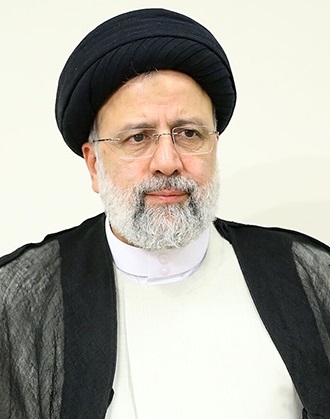Iranian President Ebrahim Raisi tragically perished in a helicopter crash in a remote, mountainous area of the country during adverse weather conditions. The accident also claimed the lives of the foreign minister and several other officials. Raisi, a major figure in Iran’s conservative political scene, had been in office for nearly three years and was viewed as a potential candidate for re-election next year.
The helicopter crash occurred in the Varzeqan region near the Azerbaijan border. Following an overnight search in difficult blizzard conditions, the wreckage was located. The crash not only took Raisi’s life but also those of Hossein Amirabdollahian, the Foreign Minister, and six other passengers and crew members, including the governor of East Azerbaijan Province and a senior imam from Tabriz.
Raisi’s career was intertwined deeply with Iran’s religious and judicial sectors. Prior to his presidency, he served as the Chief Justice of Iran and was often mentioned as a likely successor to Ayatollah Ali Khamenei, the supreme leader of Iran. Born in the religious city of Mashhad, Raisi was educated in Qom, studying under prominent scholars, including Khamenei himself.
His tenure in the judiciary was marred by his involvement in a series of executions of political prisoners in Tehran. He later led the Astan Quds Razavi, a major charitable trust, and his presidency, which began in 2021, was marked by low voter turnout and the disqualification of numerous reformist candidates.
During his time in office, Raisi adopted a strong stance on international relations, particularly against Israel and the United States, condemning Israeli actions against Palestinians. His administration also faced the aftermath of the U.S. withdrawal from the Iran nuclear deal, known as the Joint Comprehensive Plan of Action (JCPOA), under former President Donald Trump.
Domestically, Raisi’s presidency was noted for enforcing strict morality laws and conducting a crackdown on anti-government protests. These actions occurred against a backdrop of severe economic challenges, worsened by international sanctions. His government continued to resist what it perceived as hostile foreign policies, particularly from Western nations.
The sudden death of Raisi has prompted a broad array of reactions both within Iran and across the globe. Various countries and organizations have expressed their condolences, reflecting Raisi’s influential role in international affairs. As Iran faces the prospect of political transition, with First Vice President Mohammad Mokhber expected to assume the presidency, the nation confronts ongoing internal dissent and complex international relationships, pointing to a challenging future.









